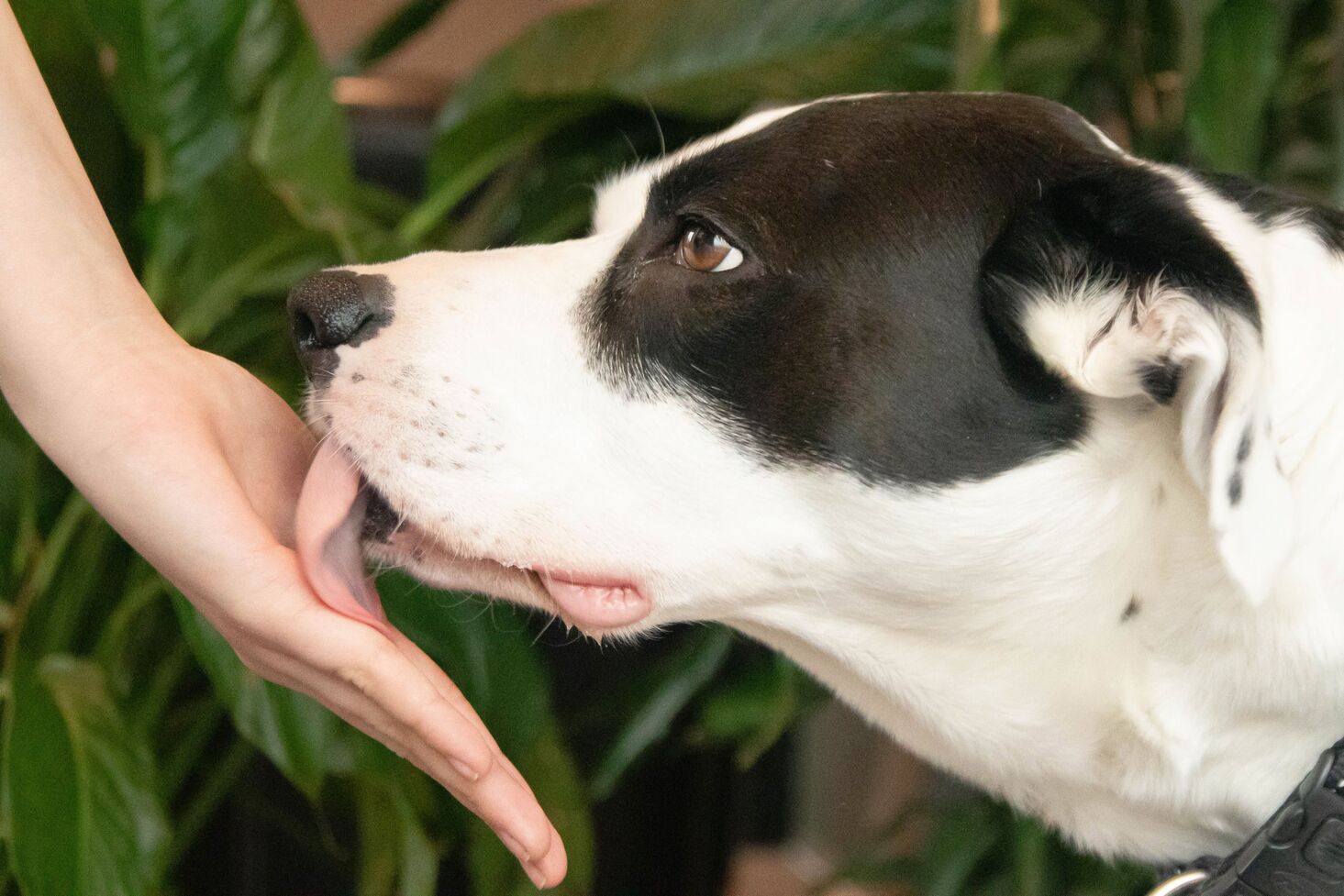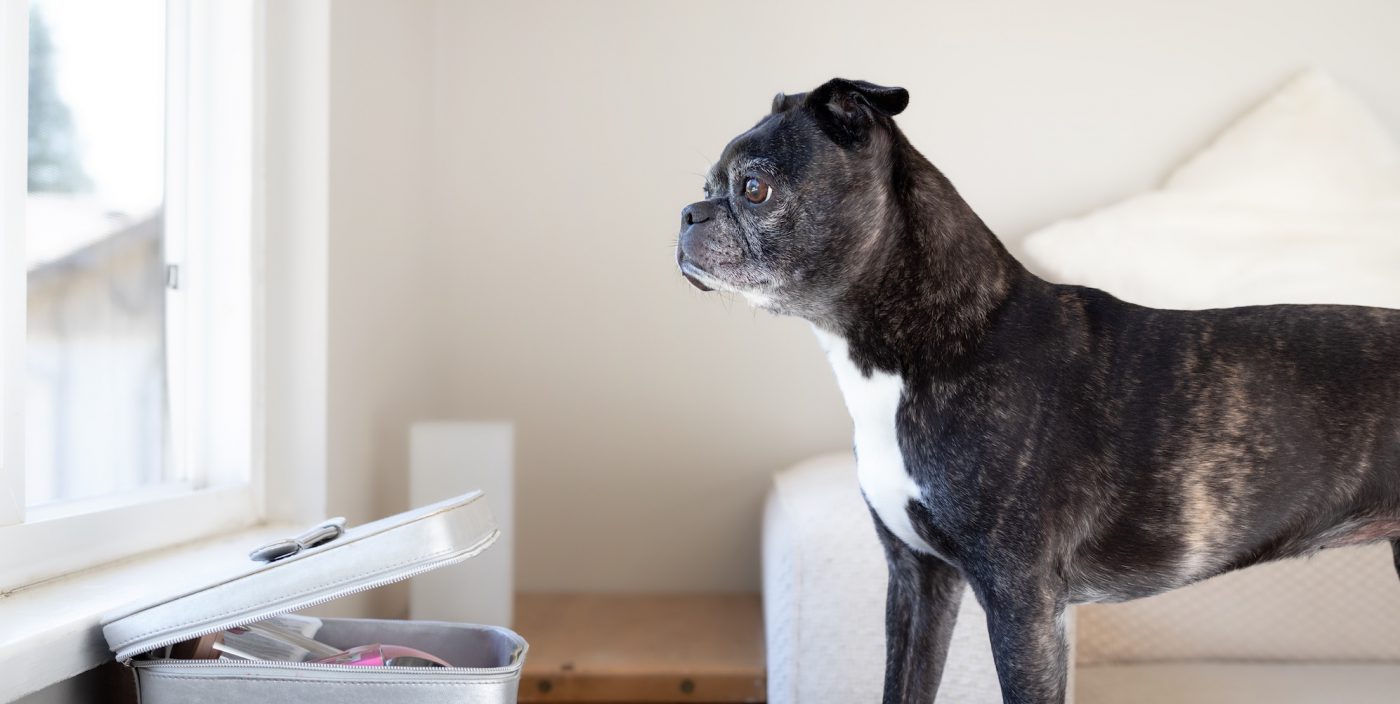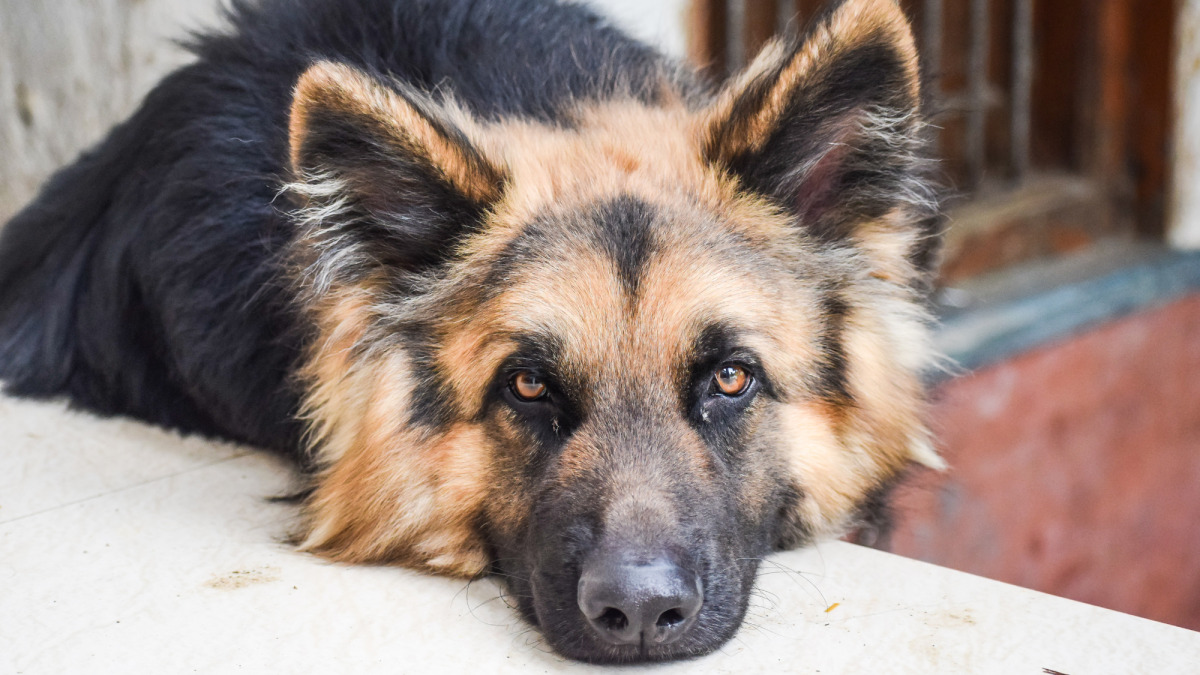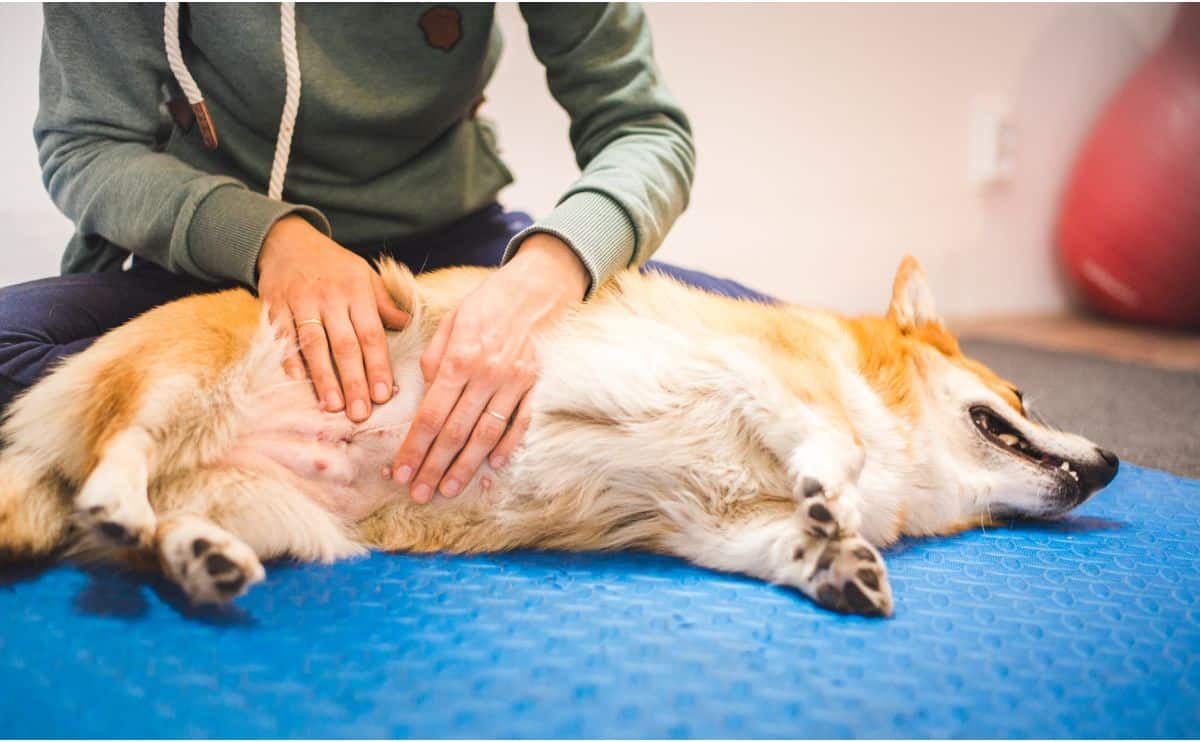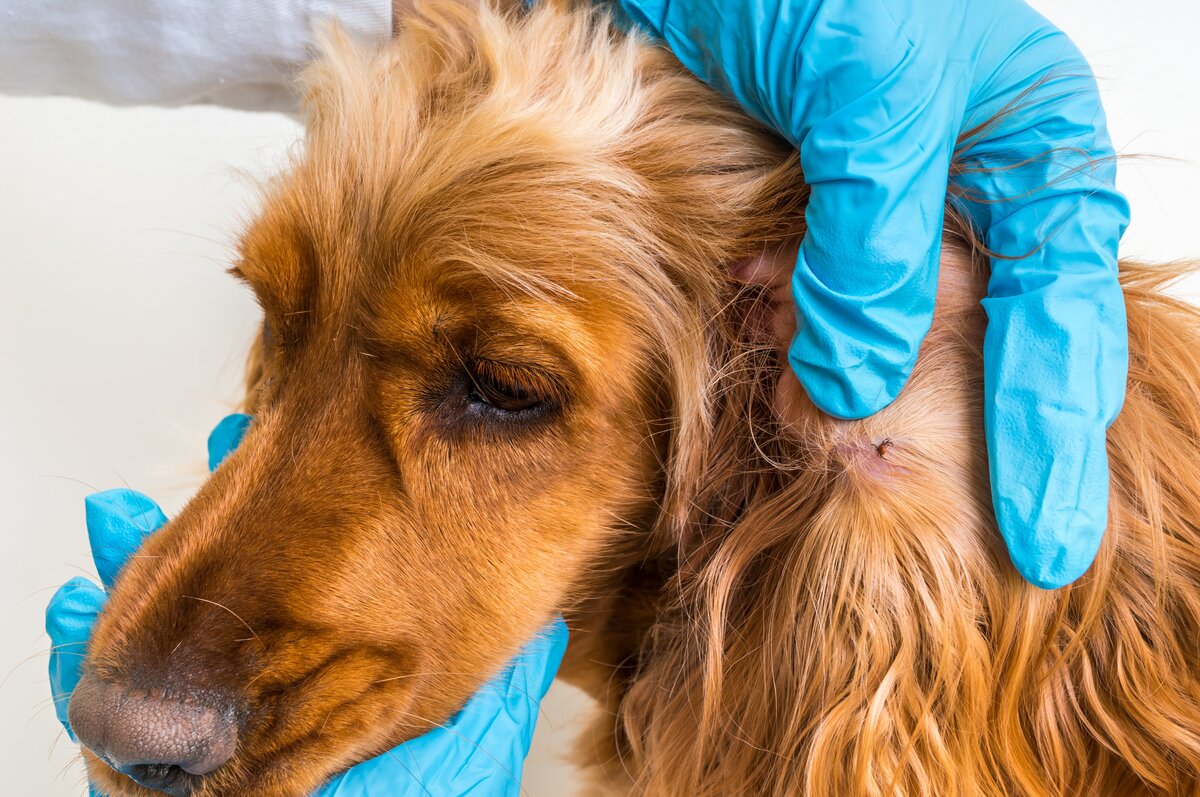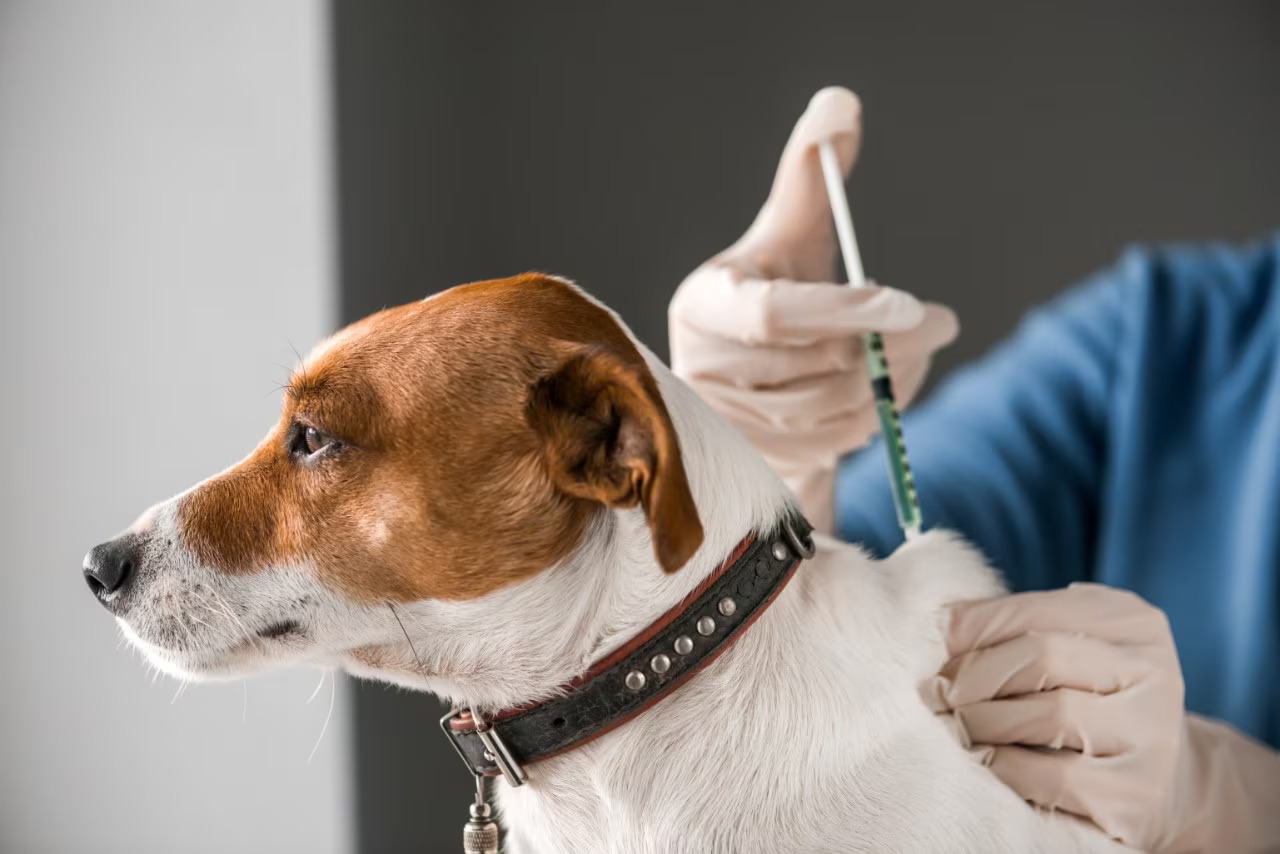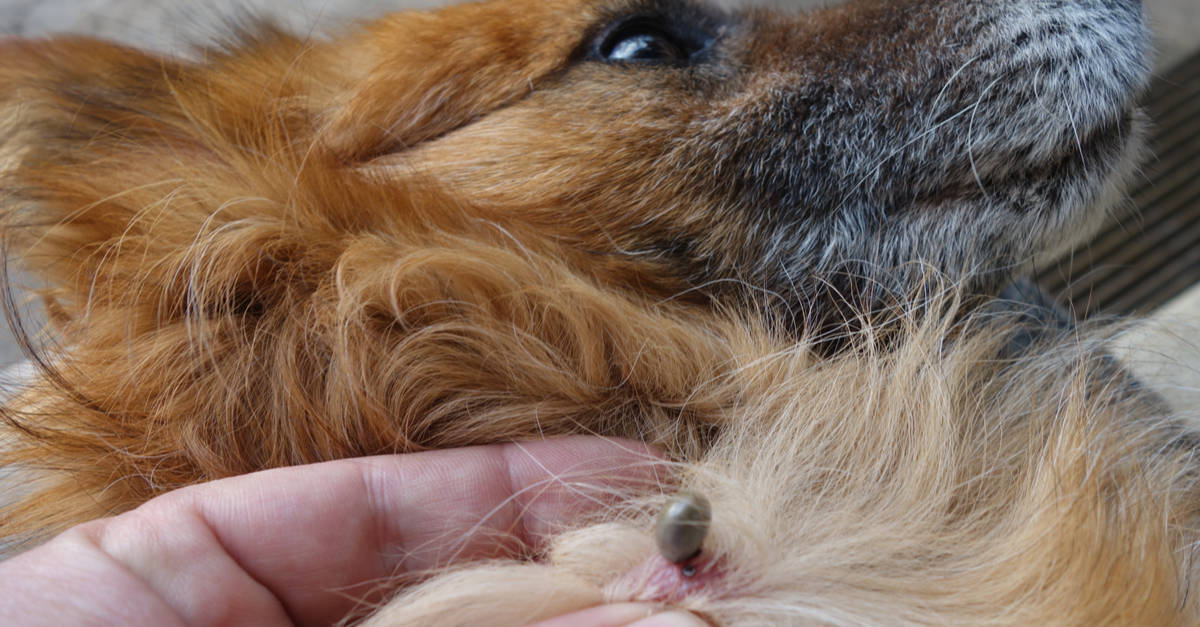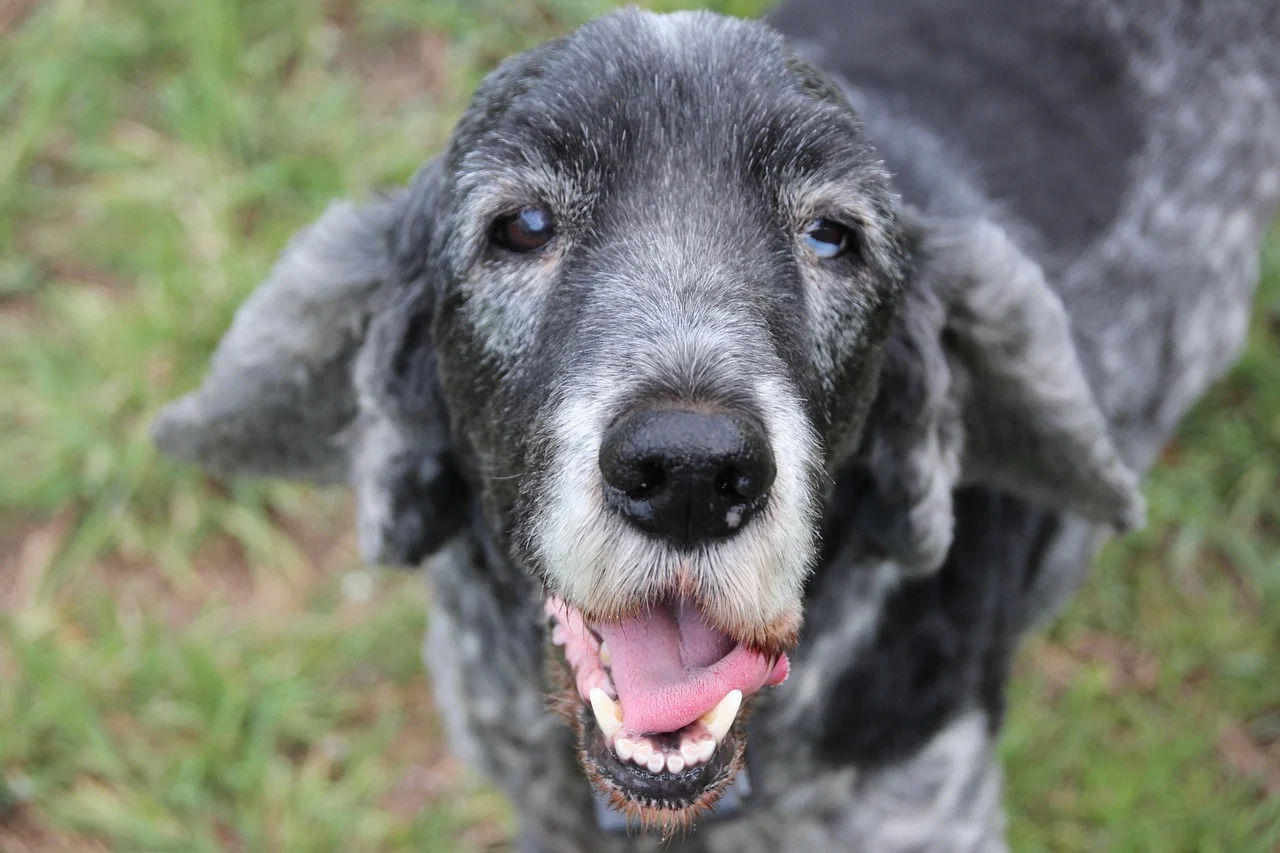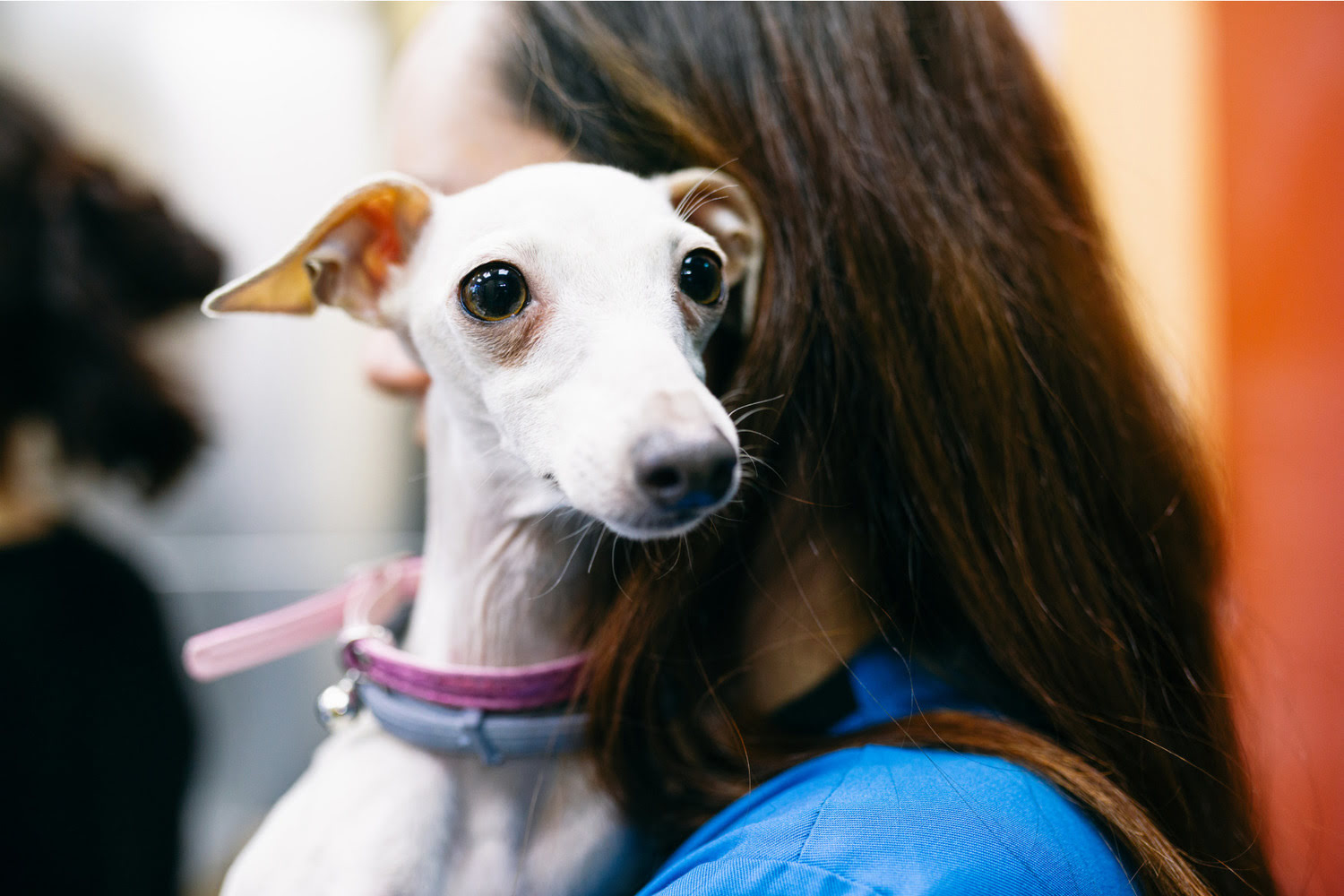Home>Health & Wellness>Behavior & Cognitive Care>Why Is My Senior Dog Biting?
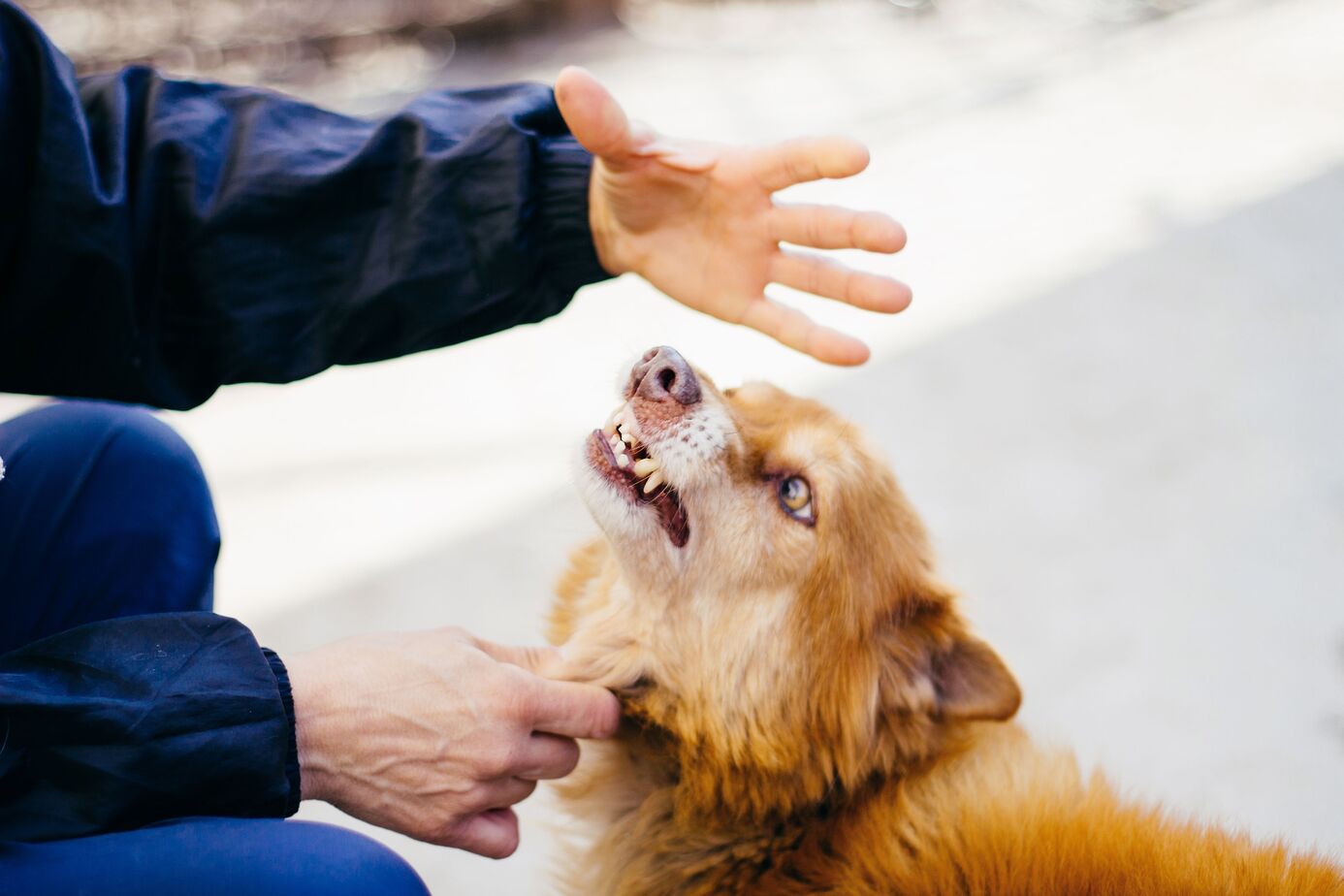

Behavior & Cognitive Care
Why Is My Senior Dog Biting?
Published: February 1, 2024
Discover the reasons behind your senior dog's biting behavior and learn how to provide the best behavior and cognitive care for your aging pet. Unlock solutions to address your senior dog's biting tendencies.
(Many of the links in this article redirect to a specific reviewed product. Your purchase of these products through affiliate links helps to generate commission for Pawsomeoldies.com, at no extra cost. Learn more)
Table of Contents
- Introduction
- Understanding the Causes of Senior Dog Biting
- Medical Issues and Pain
- Cognitive Decline and Confusion
- Fear and Anxiety
- Changes in Environment or Routine
- Lack of Socialization
- How to Address Senior Dog Biting
- Seeking Veterinary Care
- Behavior Modification and Training
- Creating a Safe and Comfortable Environment
- Conclusion
Introduction
As our beloved canine companions age, they may undergo various behavioral changes, including the unexpected and concerning behavior of biting. This shift in behavior can be distressing for pet parents, prompting a deep concern for the well-being of their senior dogs. Understanding the underlying reasons for senior dog biting is crucial in addressing and managing this issue effectively.
In this comprehensive guide, we will delve into the potential causes of senior dog biting, ranging from medical issues and pain to cognitive decline, fear, anxiety, changes in environment or routine, and lack of socialization. By gaining insight into these factors, pet parents can better comprehend their senior dogs' behavior and take appropriate measures to address and alleviate the underlying causes.
Furthermore, we will explore actionable steps and strategies for addressing senior dog biting, including seeking veterinary care, implementing behavior modification and training techniques, and creating a safe and comfortable environment for senior dogs. By providing practical guidance, this guide aims to empower pet parents with the knowledge and tools necessary to support their senior dogs and foster a harmonious and fulfilling relationship.
Join us on this enlightening journey as we unravel the complexities of senior dog biting and equip ourselves with the understanding and resources needed to ensure the well-being and happiness of our aging canine companions.
Read more: Why Fleas Bite Dogs
Understanding the Causes of Senior Dog Biting
Senior dog biting can stem from various underlying causes, each of which requires careful consideration and understanding. As our canine companions age, they may experience physical, cognitive, and emotional changes that can manifest in unexpected behaviors such as biting. By delving into the potential reasons behind senior dog biting, pet parents can gain valuable insights into their furry friends' behavior and take proactive steps to address the root causes.
Medical Issues and Pain
One of the primary factors contributing to senior dog biting is the presence of medical issues and pain. As dogs age, they are susceptible to a range of health conditions, including arthritis, dental problems, and neurological disorders, which can lead to discomfort and irritability. When experiencing pain, senior dogs may resort to biting as a means of communication or self-protection. It is essential for pet parents to monitor their senior dogs for signs of pain and seek veterinary care to address any underlying medical issues.
Cognitive Decline and Confusion
Senior dogs may also exhibit biting behavior due to cognitive decline and confusion associated with conditions such as canine cognitive dysfunction (CCD) or dementia. These cognitive changes can lead to disorientation, anxiety, and altered perception, causing senior dogs to react defensively through biting. Understanding the impact of cognitive decline on a senior dog's behavior is crucial in providing appropriate support and guidance to mitigate biting incidents.
Fear and Anxiety
Fear and anxiety are common triggers for senior dog biting. As dogs age, they may become more sensitive to environmental stressors, loud noises, unfamiliar situations, or changes in routine, leading to heightened anxiety and defensive behavior. Senior dogs may resort to biting as a response to perceived threats or discomfort, emphasizing the importance of creating a calm and reassuring environment to alleviate their fears.
Read more: Why Does My Senior Dog Keep Whining?
Changes in Environment or Routine
Changes in a senior dog's environment or routine can significantly impact their behavior, potentially leading to biting incidents. Relocation, introduction of new pets or family members, or alterations in daily schedules can cause stress and uncertainty for senior dogs, prompting defensive reactions such as biting. Recognizing the influence of environmental changes on a senior dog's well-being is essential in minimizing the likelihood of biting behavior.
Lack of Socialization
Inadequate socialization in a senior dog's earlier years can contribute to behavioral issues, including biting, especially when encountering unfamiliar people, animals, or situations. The absence of positive social experiences can result in heightened anxiety and defensive responses in senior dogs, highlighting the significance of ongoing socialization efforts to promote confidence and reduce the propensity for biting.
By comprehensively understanding the potential causes of senior dog biting, pet parents can effectively identify and address the underlying factors contributing to this behavior. This knowledge serves as a cornerstone for implementing targeted interventions and creating a supportive environment that prioritizes the well-being and emotional health of senior dogs.
Medical Issues and Pain
Senior dogs are susceptible to a myriad of medical issues that can lead to discomfort, pain, and subsequent biting behavior. As our canine companions age, they may encounter conditions such as arthritis, dental problems, and neurological disorders, all of which can significantly impact their physical well-being. Arthritis, a common ailment among senior dogs, causes inflammation and stiffness in the joints, resulting in persistent pain and reduced mobility. The discomfort associated with arthritis can trigger defensive responses, including biting, as senior dogs attempt to alleviate their distress or protect themselves from perceived threats.
Furthermore, dental problems, such as periodontal disease and tooth decay, can cause considerable pain and discomfort for senior dogs. Oral pain can manifest as irritability and sensitivity, prompting biting behavior as a defensive mechanism. Additionally, neurological disorders, including degenerative conditions and nerve-related issues, can lead to chronic pain and heightened sensitivity, influencing a senior dog's behavior and potentially resulting in biting incidents.
It is imperative for pet parents to remain vigilant for signs of pain in their senior dogs, including changes in mobility, reluctance to engage in physical activities, vocalizations indicating discomfort, and alterations in eating habits. Observing these indicators can provide valuable insights into a senior dog's physical well-being and help identify potential medical issues contributing to biting behavior.
Seeking veterinary care is paramount in addressing medical issues and pain in senior dogs. A comprehensive physical examination, diagnostic tests, and imaging studies can aid in identifying underlying health concerns and formulating an appropriate treatment plan. Pain management strategies, including medication, physical therapy, and dietary adjustments, play a pivotal role in alleviating discomfort and reducing the likelihood of biting behavior in senior dogs.
By recognizing the impact of medical issues and pain on senior dog biting behavior, pet parents can proactively prioritize their furry friends' physical well-being and take proactive measures to address any underlying health concerns. Through attentive care and timely intervention, the discomfort and distress associated with medical issues can be effectively managed, fostering a supportive and nurturing environment for senior dogs as they navigate the challenges of aging.
Cognitive Decline and Confusion
As senior dogs age, they may experience cognitive decline, leading to confusion and disorientation. Canine cognitive dysfunction (CCD), often referred to as doggy dementia, shares similarities with Alzheimer's disease in humans. This condition can result in significant changes in a dog's behavior and cognitive abilities, including memory loss, altered sleep patterns, and increased anxiety. The impact of cognitive decline on a senior dog's behavior can be profound, potentially leading to defensive responses such as biting.
Senior dogs affected by cognitive decline may exhibit signs of confusion and disorientation, struggling to recognize familiar people, places, or routines. This altered perception of their surroundings can evoke fear and anxiety, prompting defensive behaviors as a means of self-protection. Additionally, memory loss and cognitive impairment can contribute to a senior dog's inability to interpret and respond to stimuli appropriately, leading to heightened reactivity and potential biting incidents.
Understanding the challenges associated with cognitive decline in senior dogs is crucial for pet parents in providing compassionate and effective support. By recognizing the impact of CCD on a senior dog's behavior, pet parents can implement strategies to minimize confusion and anxiety, thereby reducing the likelihood of biting behavior.
Creating a structured and predictable environment for senior dogs can help alleviate the effects of cognitive decline. Establishing consistent daily routines, maintaining familiar surroundings, and minimizing environmental changes can provide a sense of security and stability for senior dogs experiencing cognitive challenges. Additionally, providing mental stimulation through interactive toys, gentle exercise, and positive reinforcement training can support cognitive function and promote a sense of accomplishment for senior dogs.
Seeking guidance from a veterinarian specializing in senior dog care is essential for addressing cognitive decline and its impact on behavior. Veterinarians can offer tailored recommendations, including dietary adjustments, cognitive support supplements, and behavioral management techniques to enhance the quality of life for senior dogs affected by CCD.
By acknowledging the influence of cognitive decline and confusion on senior dog biting behavior, pet parents can cultivate an environment that prioritizes understanding, patience, and support for their aging canine companions. Through empathy and targeted interventions, the challenges associated with cognitive decline can be mitigated, fostering a nurturing and enriching environment for senior dogs in their golden years.
Read more: Why Is My Senior Dog Breathing Fast?
Fear and Anxiety
Fear and anxiety are common triggers for senior dog biting, often stemming from heightened sensitivity to environmental stressors and perceived threats. As dogs age, they may become more susceptible to anxiety-inducing stimuli, including loud noises, unfamiliar surroundings, and changes in routine. These stressors can evoke a sense of unease and apprehension in senior dogs, leading to defensive behaviors such as biting as a means of self-protection or communication.
The manifestation of fear and anxiety in senior dogs can vary widely, with some exhibiting signs of trembling, panting, or seeking refuge, while others may display defensive aggression, including growling and biting. Understanding the underlying causes of fear and anxiety in senior dogs is essential for pet parents to provide appropriate support and intervention.
Environmental factors, such as thunderstorms, fireworks, or unfamiliar visitors, can trigger fear and anxiety in senior dogs, prompting defensive responses. Additionally, changes in routine, such as alterations in feeding schedules or walking routes, can disrupt a senior dog's sense of security, leading to heightened anxiety and potential biting incidents.
Creating a calm and reassuring environment is crucial in alleviating fear and anxiety in senior dogs. Providing a designated safe space, such as a cozy bed or crate, where senior dogs can retreat during stressful situations can offer a sense of security and comfort. Additionally, employing calming techniques, such as gentle massage, soothing music, or pheromone diffusers, can help mitigate anxiety and reduce the likelihood of biting behavior.
Positive reinforcement training plays a pivotal role in addressing fear and anxiety in senior dogs. By utilizing reward-based training methods, pet parents can help senior dogs associate anxiety-inducing stimuli with positive experiences, gradually reducing their fear response. Consistent and patient guidance can empower senior dogs to overcome their anxieties and develop coping mechanisms that do not involve defensive behaviors like biting.
Seeking guidance from a qualified professional, such as a certified dog behaviorist or trainer, can provide pet parents with tailored strategies for managing fear and anxiety in senior dogs. These experts can offer personalized behavior modification techniques and desensitization exercises to help senior dogs build confidence and resilience in the face of anxiety-inducing triggers.
By acknowledging the impact of fear and anxiety on senior dog biting behavior, pet parents can proactively create a supportive and nurturing environment that prioritizes the emotional well-being of their aging canine companions. Through patience, understanding, and targeted interventions, the challenges associated with fear and anxiety can be effectively managed, fostering a harmonious and enriching relationship between pet parents and their senior dogs.
Changes in Environment or Routine
Changes in a senior dog's environment or routine can significantly impact their behavior, potentially leading to biting incidents. Relocation, introduction of new pets or family members, or alterations in daily schedules can cause stress and uncertainty for senior dogs, prompting defensive reactions such as biting. Recognizing the influence of environmental changes on a senior dog's well-being is essential in minimizing the likelihood of biting behavior.
Relocation, whether to a new home or temporary environment, can be particularly distressing for senior dogs. The unfamiliar sights, sounds, and scents can evoke feelings of insecurity and anxiety, leading to defensive behaviors as senior dogs attempt to assert control in an unfamiliar territory. Additionally, the absence of familiar landmarks and routines can exacerbate the sense of disorientation, potentially triggering biting as a response to perceived threats or discomfort.
The introduction of new pets or family members into the household can disrupt the established social dynamics for senior dogs, leading to heightened stress and territorial concerns. Senior dogs may perceive the presence of new individuals or animals as a threat to their established routines and resources, prompting defensive behaviors such as biting in an attempt to assert their boundaries and protect their perceived territory.
Alterations in daily schedules, such as changes in feeding times, walking routines, or social interactions, can also impact a senior dog's sense of security and predictability. Dogs thrive on routine and familiarity, and deviations from established schedules can create uncertainty and anxiety. Senior dogs may exhibit defensive behaviors, including biting, as a response to the perceived disruption of their daily rhythms and expectations.
To mitigate the impact of changes in environment or routine on senior dog biting behavior, pet parents can implement gradual transitions and provide reassurance and support during periods of change. Maintaining consistent routines to the best of their ability, introducing new elements gradually, and offering ample opportunities for familiarization can help senior dogs adapt more comfortably to environmental changes.
Additionally, creating designated safe spaces within the home where senior dogs can retreat and feel secure during times of upheaval can provide a sense of stability and reassurance. By acknowledging the potential stressors associated with changes in environment or routine, pet parents can proactively minimize the likelihood of biting behavior and foster a supportive and nurturing environment for their senior dogs.
Lack of Socialization
Lack of socialization in a senior dog's earlier years can have a profound impact on their behavior, potentially contributing to issues such as biting, especially when encountering unfamiliar people, animals, or situations. Socialization plays a pivotal role in shaping a dog's confidence, communication skills, and ability to navigate diverse environments with ease and composure. When senior dogs have not been adequately exposed to a variety of social experiences during their formative years, they may exhibit heightened anxiety and defensive responses when confronted with unfamiliar stimuli.
The absence of positive socialization experiences can result in senior dogs perceiving novel situations as threatening or overwhelming, triggering defensive behaviors such as biting as a means of self-protection. Additionally, the lack of exposure to different people, animals, and environments can lead to heightened reactivity and uncertainty in senior dogs, further exacerbating their propensity for defensive responses.
Addressing the impact of lack of socialization on senior dog biting behavior necessitates a multifaceted approach aimed at gradually acclimating senior dogs to new experiences and stimuli. Patient and gentle exposure to unfamiliar people, animals, and environments can help senior dogs build confidence and develop positive associations, reducing their inclination towards defensive behaviors such as biting.
Engaging in controlled socialization activities, such as supervised introductions to friendly dogs or gradual exposure to diverse environments, can aid in broadening a senior dog's comfort zone and diminishing their apprehension towards unfamiliar stimuli. Positive reinforcement techniques, including praise, treats, and soothing verbal cues, can further reinforce a senior dog's positive associations with socialization experiences, fostering a sense of security and ease in novel situations.
Furthermore, seeking guidance from professional trainers or behaviorists specializing in senior dog care can provide pet parents with tailored strategies for addressing the impact of lack of socialization on biting behavior. These experts can offer personalized socialization plans and behavior modification techniques to help senior dogs build confidence and resilience, ultimately reducing their reliance on defensive responses such as biting.
By acknowledging the significance of socialization in mitigating senior dog biting behavior, pet parents can actively work towards creating enriching and positive social experiences for their aging canine companions. Through patient guidance and gradual exposure, the adverse effects of lack of socialization can be mitigated, fostering a sense of confidence and adaptability in senior dogs as they navigate the complexities of the world around them.
How to Address Senior Dog Biting
Addressing senior dog biting requires a multifaceted approach that encompasses proactive measures to understand, manage, and mitigate the underlying factors contributing to this behavior. By prioritizing the well-being and emotional health of senior dogs, pet parents can implement targeted interventions to address senior dog biting effectively.
Read more: Why Is My Senior Dog Barking All The Time
Seeking Veterinary Care
Initiating the process of addressing senior dog biting begins with seeking veterinary care to assess the physical and mental health of the dog. A comprehensive physical examination, diagnostic tests, and discussions with the veterinarian can provide valuable insights into any underlying medical issues, pain, or cognitive changes that may be influencing the biting behavior. By identifying and addressing potential health concerns, pet parents can alleviate discomfort and distress, thereby reducing the likelihood of biting incidents.
Behavior Modification and Training
Implementing behavior modification and training techniques is instrumental in addressing senior dog biting. Positive reinforcement training methods can help senior dogs develop alternative coping mechanisms and communication strategies, reducing their reliance on defensive behaviors such as biting. By rewarding desirable behaviors and providing consistent guidance, pet parents can empower their senior dogs to navigate challenging situations with confidence and composure.
Creating a Safe and Comfortable Environment
Establishing a safe and comfortable environment plays a pivotal role in addressing senior dog biting. Providing designated safe spaces where senior dogs can retreat during stressful situations fosters a sense of security and reassurance. Additionally, minimizing environmental stressors, maintaining consistent routines, and offering mental stimulation can contribute to a supportive and nurturing environment that promotes emotional well-being and reduces the likelihood of biting behavior.
By integrating these proactive measures into their approach, pet parents can effectively address senior dog biting and cultivate a harmonious and fulfilling relationship with their aging canine companions. Through empathy, understanding, and targeted interventions, the challenges associated with senior dog biting can be mitigated, fostering a supportive and enriching environment for senior dogs in their golden years.
Seeking Veterinary Care
Seeking veterinary care is the foundational step in addressing senior dog biting behavior, as it provides crucial insights into the physical and mental well-being of the dog. A comprehensive physical examination conducted by a qualified veterinarian serves as the initial point of assessment, enabling the identification of any underlying medical issues, pain, or cognitive changes that may be contributing to the biting behavior.
During the veterinary consultation, pet parents have the opportunity to discuss their senior dog's behavioral concerns in conjunction with any observed changes in their overall health and demeanor. This open dialogue facilitates a holistic understanding of the dog's condition, allowing the veterinarian to consider potential correlations between physical discomfort, cognitive decline, and biting behavior.
Diagnostic tests, including blood work, imaging studies, and neurological assessments, may be recommended to further evaluate the senior dog's health status. These diagnostic measures aid in identifying any underlying medical conditions, such as arthritis, dental problems, or neurological disorders, that could be causing pain or distress, potentially leading to defensive behaviors like biting.
In cases where cognitive decline, such as canine cognitive dysfunction (CCD), is suspected to be a contributing factor to the biting behavior, the veterinarian can provide specialized assessments to gauge the extent of cognitive impairment and its impact on the dog's behavior. This comprehensive evaluation allows for the formulation of tailored intervention strategies to support senior dogs affected by cognitive changes.
Upon identifying any health concerns or cognitive challenges, the veterinarian can collaborate with pet parents to develop a personalized treatment plan. This plan may encompass pain management strategies, such as medication, physical therapy, or dietary modifications, to alleviate discomfort and reduce the likelihood of biting. Additionally, targeted interventions, including cognitive support supplements and behavioral management techniques, can be recommended to address cognitive decline and its influence on the dog's behavior.
By seeking veterinary care, pet parents demonstrate a proactive commitment to understanding and addressing the underlying factors contributing to their senior dog's biting behavior. The collaborative partnership between pet parents and veterinarians fosters a comprehensive approach to senior dog care, prioritizing the physical and emotional well-being of aging canine companions. Through attentive veterinary assessment and tailored intervention strategies, the challenges associated with senior dog biting can be effectively managed, promoting a harmonious and supportive environment for senior dogs in their golden years.
Read more: Why Is My Senior Dog Peeing So Much?
Behavior Modification and Training
Implementing behavior modification and training techniques is instrumental in addressing senior dog biting. Positive reinforcement training methods can help senior dogs develop alternative coping mechanisms and communication strategies, reducing their reliance on defensive behaviors such as biting. By rewarding desirable behaviors and providing consistent guidance, pet parents can empower their senior dogs to navigate challenging situations with confidence and composure.
Positive reinforcement training focuses on reinforcing desired behaviors through the use of rewards, such as treats, praise, and affection. When senior dogs exhibit calm and non-aggressive responses in situations that would typically trigger biting, they are rewarded, reinforcing the desired behavior. This approach not only encourages positive conduct but also strengthens the bond between pet parents and their senior dogs, fostering a trusting and cooperative relationship.
Incorporating desensitization and counter-conditioning techniques can aid in modifying a senior dog's response to triggering stimuli. Gradual exposure to stimuli that typically elicit defensive reactions, coupled with positive experiences and rewards, can help senior dogs reframe their perceptions and develop more adaptive responses. For instance, if a senior dog displays aggression when approached by unfamiliar individuals, gradual and controlled introductions, combined with positive reinforcement, can help alleviate their apprehension and reduce the likelihood of biting.
Consistency and patience are paramount in behavior modification and training efforts. Senior dogs may require additional time and support to unlearn established defensive behaviors and adopt new, more constructive responses. By maintaining a calm and reassuring demeanor, pet parents can provide a sense of security for their senior dogs, facilitating the learning and adaptation process.
Seeking guidance from professional trainers or behaviorists specializing in senior dog care can provide pet parents with tailored strategies for addressing biting behavior. These experts can offer personalized behavior modification plans and training regimens designed to meet the specific needs of senior dogs. Additionally, they can provide valuable insights and support for pet parents, empowering them to navigate the complexities of behavior modification with confidence and expertise.
By integrating positive reinforcement, desensitization, and counter-conditioning techniques into their approach, pet parents can effectively address senior dog biting and cultivate a harmonious and fulfilling relationship with their aging canine companions. Through empathy, understanding, and targeted interventions, the challenges associated with senior dog biting can be mitigated, fostering a supportive and enriching environment for senior dogs in their golden years.
Creating a Safe and Comfortable Environment
Creating a safe and comfortable environment for senior dogs is essential in addressing and preventing biting behavior. Senior dogs, like humans, seek security, predictability, and a sense of belonging within their living space. By prioritizing the creation of a nurturing environment, pet parents can significantly influence their senior dogs' emotional well-being and behavior.
One fundamental aspect of fostering a safe environment for senior dogs is the provision of designated safe spaces within the home. These areas serve as retreats where senior dogs can seek solace and security during stressful or overwhelming situations. Comfortable beds, cozy blankets, or enclosed crates can serve as comforting retreats, offering a sense of security and reassurance for senior dogs when they feel anxious or vulnerable.
Minimizing environmental stressors is another crucial element in creating a safe and comfortable environment. Loud noises, abrupt movements, or chaotic surroundings can provoke anxiety and defensive responses in senior dogs, potentially leading to biting incidents. By maintaining a calm and serene living space, pet parents can reduce the likelihood of triggering fear or discomfort in their senior dogs, promoting a sense of tranquility and emotional equilibrium.
Consistency in routines and daily rituals plays a pivotal role in providing a safe and comfortable environment for senior dogs. Predictable feeding times, regular exercise schedules, and established bedtime rituals contribute to a sense of security and stability for senior dogs. These routines offer reassurance and predictability, minimizing the potential for stress-induced behaviors, including biting.
Furthermore, mental stimulation and enrichment activities are integral components of a safe and comfortable environment for senior dogs. Interactive toys, gentle exercise, and cognitive challenges can engage senior dogs' minds, promote a sense of accomplishment, and alleviate boredom or anxiety. Mental stimulation not only enhances cognitive function but also fosters a positive and fulfilling daily experience for senior dogs.
By integrating these elements into the living environment, pet parents can create a safe and comfortable haven for their senior dogs, promoting emotional well-being and reducing the likelihood of biting behavior. Through attentive care, empathy, and a proactive approach to environmental management, pet parents can cultivate a nurturing and supportive space that prioritizes the happiness and contentment of their aging canine companions.
Conclusion
In conclusion, the multifaceted nature of senior dog biting behavior necessitates a comprehensive understanding of the underlying factors contributing to this complex issue. By delving into the potential causes of senior dog biting, including medical issues and pain, cognitive decline and confusion, fear and anxiety, changes in environment or routine, and lack of socialization, pet parents can gain valuable insights into their senior dogs' behavior and take proactive measures to address the root causes.
Seeking veterinary care emerges as a crucial initial step in addressing senior dog biting behavior, as it enables the identification and management of any underlying medical issues, pain, or cognitive changes that may be influencing the behavior. Through collaborative efforts with veterinarians, pet parents can develop personalized treatment plans to alleviate discomfort and distress, thereby reducing the likelihood of biting incidents.
Behavior modification and training techniques play a pivotal role in addressing senior dog biting, empowering senior dogs to develop alternative coping mechanisms and communication strategies through positive reinforcement and desensitization. By fostering a safe and comfortable environment, pet parents can create a nurturing space that prioritizes the emotional well-being of their senior dogs, reducing the likelihood of stress-induced behaviors such as biting.
In essence, the journey of addressing senior dog biting requires empathy, understanding, and proactive intervention. By acknowledging the challenges associated with this behavior and implementing targeted strategies, pet parents can cultivate a harmonious and fulfilling relationship with their aging canine companions. Through attentive care and a commitment to emotional well-being, the challenges associated with senior dog biting can be effectively managed, fostering a supportive and enriching environment for senior dogs in their golden years.
